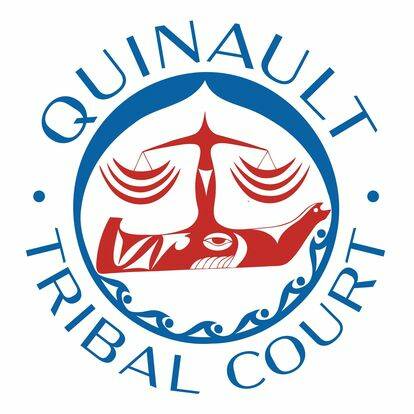The Quinault Indian Nation Tribal Court received a federal funding boost that will enhance the capacity and reach of its drug court program, which provides culturally-relevant and trauma-informed substance use and opioid treatment programs.
The nation announced Sept. 9 it received a $2 million grant award from the Substance Abuse and Mental Health Services Administration (SAMHSA), a branch of the U.S. Department of Health and Human Services.
That money, to be used in $400,000 increments over the next five years, will allow the tribe’s Adult & Family Healing to Wellness Court diversion program to hire more staff and counselors, supply new treatments and expand the program with drug court participants in other jurisdictions in Grays Harbor County.
The initiative will launch this October, according to the press release.
“The opioid crisis, which has seen a surge in the use of synthetic opioids, has drastically altered the way American Indians and Alaska Natives access rehabilitation resources,” the release states. “Coupled with the absence of culturally tailored assistance, these communities find themselves at an increased risk. The Quinault Nation, and indeed the Grays Harbor County community in the Pacific Northwest, is among the hardest hit.”
Grays Harbor County has one of the highest rates of drug and opioid overdose deaths of any county in Washington state. The most recent data from the Washington state Department of Health shows 65 deaths per 100,000 people, slightly less than double the statewide rate.
According to data presented at a Washington state tribal opioid summit earlier this year, opioid use disorder among Medicaid clients is 25-50% more prevalent among American Indian and Alaska Native people than for the entire client base. In 2016, opioid and drug overdose death rates among American Indian and Alaska Native people in Washington state were nearly three times higher than the statewide rate, according to data from the Northwest Portland Area Indian Health Board.
The Quinault Tribal Court received the maximum grant award through SAMHSA’s Treatment Drug Courts grant program, which in its most recent awards distributed a total of $32.4 million to expand substance use treatments in both non-tribal and tribal drug courts.
With the grant money, the tribal court predicts it will be able to serve about 40 people per year in 60-month program installments. That would be a significant increase from the Adult Wellness Court’s current capacity — 18 people have participated since the court was reestablished in May 2022, and two participants are enrolled currently, said Quinault Tribal Court Chief Judge Leona Colegrove.
Colegrove first formed the tribe’s Adult Wellness Court program in 2011 after taking over as chief judge. The program petered out in the years following when Colegrove left the nation, but was restarted when Colegrove returned two years ago. In addition, Colegrove recently formed the Family Wellness Court and a Juvenile Wellness Court.
After a previous state Supreme Court decision deemed drug possession laws unconstitutional and void in 2021, the state Legislature earlier this year passed SB 5536, or the “Blake Fix,” which re-criminalized possession of hard drugs such as fentanyl, heroin, methamphetamine and cocaine.
Similar to drug or therapeutic court models in other jurisdictions, defendants convicted of drug offenses or substance-abuse related crimes in tribal court can choose to attend wellness court programs in lieu of jail time.
But unlike other local drug courts, Quinault Tribal Court uses traditional healing methods and practices — sweat lodges or digging for clams and chopping wood for elders, for example. Colegrove, a Quinault Indian Nation member, said the tribal justice system is traditionally more community-based compared to the top-down approach of Western society.
Implementing culturally sensitive treatment and practices is the most important aspect of the upcoming grant programming, Colegrove said. That means coordinating with local jurisdictions, such as Grays Harbor County Therapeutic Court, to help treat defendants who are tribal members participate in tribal wellness court. Colegrove said she developed a similar joint-jurisdiction system with a county while working for a tribe in California.
“We recognize that the opioid epidemic doesn’t stop at the reservation boundary,” Colegrove said. “We have tribal members outside of the reservation as well. We’ve really recognized that in order for us to heal our community, we’re really going to need to partner with the entire community.”
Colegrove added that details of the program have not been finalized and didn’t exclude the possibility of non-tribal members participating.
The tribe’s Quinault Wellness Center in Aberdeen, which opened in 2022, offers opioid treatment to both tribal and non-tribal members.
“I’ve really been impressed with the leadership of the nation and their willingness and their desire to really step up to the plate when it comes to the opioid epidemic,” Colegrove said. “Anytime that I have requested to do programming that’s outside of the box and a more restorative approach to justice, they are 100% on board.”
Contact reporter Clayton Franke at 406-552-3917 or clayton.franke@thedailyworld.com.



